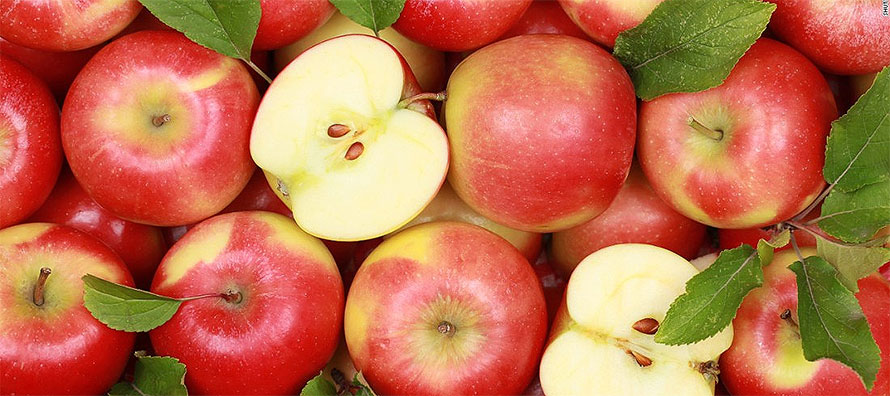This extraordinary fruit extract and its effects are still not fully understood, yet some of the ways in which olive oil can preserve and improve human health have been firmly established. Here are the five most scientifically proven health benefits of olive oil today.
1) It Can Help Lower Your “Bad” Cholesterol

Low Density Lipoprotein (LDL), also known as the “bad cholesterol” transports and deposits cholesterol in the tissues and arteries, which can eventually cause plaque and block the artery. Monounsaturated fats can lower LDL thus protecting against atherosclerosis. Plus, this type of fat does not affect the levels of High Density Lipoproteins (HDL) known as the “good cholesterol,” which carries all cholesterol away from the arteries, and high levels of which are associated with a decreased risk of cardiovascular diseases.
Olive oil is one of the best sources of monounsaturated fats and has the advantage of being less susceptible to oxidation. In addition, oleic acid, a fatty acid abundant in olive oil, appears to protect from oxidation of LDL.
It is important to note that to achieve this reduction in bad cholesterol you must replace the unhealthy fats with olive oil in combination with a healthy diet routine.
2) Olive Oil Can Help Lower Your Blood Pressure

Several studies for different age groups, and with a large number of participants, have found that the consumption of olive oil is associated with a decrease in blood pressure.
The SUN (Seguimiento University of Navarra) study with over 6,000 participants found that olive oil intake reduced the incidence of hypertension in men, while another Spanish study published this month in the American Journal of Hypertension found that a diet containing polyphenol rich olive oil reduced blood pressure in young women with mild hypertension.
Results from the Greek component of the EPIC study (European Prospective Investigation into Cancer and Nutrition) which included over 28,500 volunteers concluded that olive oil intake is inversely proportionate to both systolic and diastolic blood pressure. While it appears that the polyphenols in the olive oil may be responsible for this action, researchers have demonstrated that oleic acid; a fatty acid in olive oil may also induce this lowering effect.
3) Olive Oil prevents formation of cancer cells

Olive oil consumption has been associated with a reduced risk of cancer.
A review conducted by Greek researchers from the University of Athens published last year of 19 observational studies, with over 36,000 participants, found that higher rates of olive oil consumption were associated with lower odds of having any type of cancer. Another review of 25 epidemiological studies concluded that “preferring olive oil to other added lipids, particularly those rich in saturated fats, can decrease the risk of upper digestive and respiratory tract neoplasm, breast and, possibly, colorectal and other cancer sites.
4) It protects the body from oxidative damage

Olive oil contains certain polyphenols that, along with oleic acid, appear to protect the oxidation of LDL cholesterol in the body.
Researchers for the Eurolive Study Group found that consumption of olive oil at real-life doses of about 2 tablespoons per day improved the fatty acid profile in LDL, associated with a reduction of the oxidative damage to lipids. It appears that oxidized LDL is an important contributor to atherogenesis; the process of plaque buildup in the arteries that eventually can lead to atherosclerosis (blocking of the arteries).
It is important to note that only polyphenol rich extra virgin olive oils may have this effect, not refined olive oil, which does not contain these substances.
5) Olive Oil Can Help Cognitive Function

Although olive oil is better known for its protection against heart diseases and cancer, there is an emerging amount of research regarding the effect of olive oil on cognitive function/brain activity, specifically, on cognitive decline associated with aging.
Generally, the type of fat consumed can affect cognitive function. A recent study from Brigham and Women’s Hospital, a teaching affiliate of Harvard Medical School, analyzed data from 6,000 women over the age of 65, a subset of the Women’s Health Study. They found that women who consumed the highest amount of monounsaturated fats, which can be found in olive oil, had better patterns of cognitive scores over time.
But it appears that olive oil specifically has a protective effect. Results from the Three City Study, an ongoing multicenter study of vascular risk factors for dementia using information from almost 7,000 participants, showed that individuals who had moderate to intensive use of olive oil had lower odds of cognitive deficit for verbal fluency and visual memory compared to individuals who had never used olive oil.



























